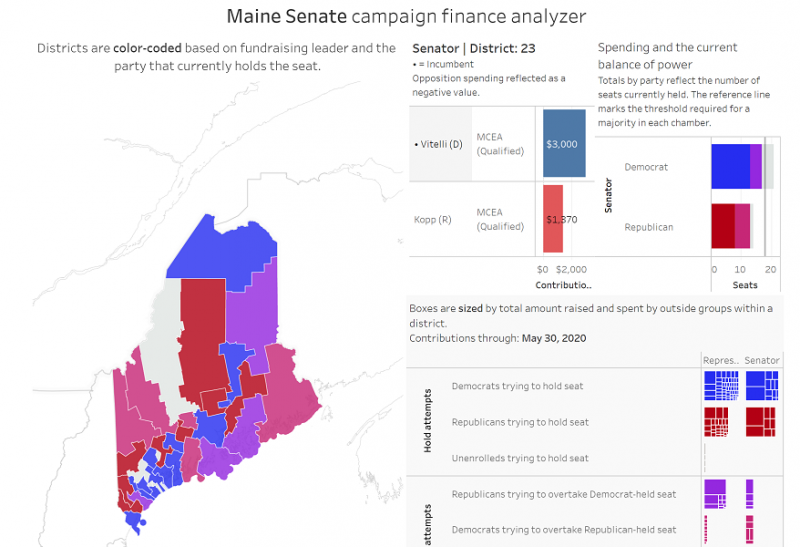The below story and data was compiled by Maine Monitor.
Maine Monitor is a local journalism product published by The Maine Center for Public Interest Reporting, a nonpartisan, nonprofit civic news organization based in Augusta. Its public-facing website is themainemonitor.org.
All data is sourced from the Maine Ethics Commission. Questions about the data can be directed to the author via email.
It’s an even-numbered year, and in Maine that means state legislature elections — and a possible changeover of power — are imminent.
With Maine’s constitution imposing two-year terms for officials in both chambers, all 35 seats in the state senate and 151 seats in the state house of representatives are up in the air.
Democrats currently hold the majority in both chambers.
Absent polling data, campaign spending provides one of the only concrete windows into party jockeying for power in Maine’s Legislature.
The data dashboards below analyze that spending by outside parties and donors to specific campaigns.
Attempts to hold a seat mean the incumbent party has raised more cash and has more outside support than any challenger party. Attempts to overtake a seat mean the challenger party has raised more cash and has more outside support than the incumbent party. The districts highlighted in the key represent the cases where each dynamic is most pronounced.
This early on, the differences in spending can be slight, tipping the race into one category or another. In the interactive graphics below, the information for any race can be filtered down by clicking on different parts of the display.
The amounts for each district are also changing daily; the data is refreshed every night from the Maine Ethics Commission.
The MCEA acronym indicates that candidates have qualified for Maine Clean Election Act funds, meaning they have garnered enough small contributions to the Maine Clean Election Fund from voters in their district to access public funding for their campaign.
In order to qualify, candidates face a number of campaign finance restrictions intended to level the playing field across socioeconomic backgrounds. After qualifying, clean election candidates can no longer collect private contributions but can receive additional public funding by collecting more qualifying contributions to the clean election fund.


























